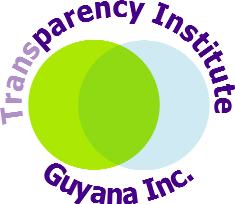The question posed is one which has engendered debate in recent years, spurred research, policy papers and government action in many countries to actively involve women in political life as an anti corruption strategy.
According to the Anti-Corruption Research Network “several early, mainly econometric contributions to this discussion claimed there is indeed a link between higher representation of women in government and lower levels of corruption.” Ten years ago the World Bank in a report Engendering Development 2001 posited “there may be intrinsic differences in the behaviours of women and men that lead to cleaner government when more women are in key government positions.
The notion that on average, women and men respond to social and economic situations in different ways is not radical. Some part of these behavioural differences stems from gender differences in schooling, experience in the workforce, and access to information and technology, among other things.” Further, “Studies in behavioural and social sciences suggest that men and women differ in behaviours that have to do with corruption, the general conclusion being that women are more community-oriented and selfless than men. Some control experiments find that women are more likely to exhibit generosity and altruism than men—but other experiments contest these results.” (World Bank- Engendering Development 2001:96).
 This notion that women are less corruptible whether through a process of nature or nurture has found favour with many, to the extent that some governments are actively pursuing policies that result in women being placed in the frontlines of the anti corruption fight. The Prime Minister of Bulgaria in early 2010 promoted a number of women to senior positions in government. His rationale, among others, “women have stronger characters than men because when they say no they mean no, and they are less corruptible”. His detractors have argued that his actions are nothing short of window dressing. At a grass roots level women are defining their role in the fight by coalescing into action groups. In Nigeria, the Oyo Women Alliance against Corruption was established earlier this month under the theme ‘Mobilising Women against Corruption for National Rebirth’ (Nigerian Tribune October 24th 2011).
This notion that women are less corruptible whether through a process of nature or nurture has found favour with many, to the extent that some governments are actively pursuing policies that result in women being placed in the frontlines of the anti corruption fight. The Prime Minister of Bulgaria in early 2010 promoted a number of women to senior positions in government. His rationale, among others, “women have stronger characters than men because when they say no they mean no, and they are less corruptible”. His detractors have argued that his actions are nothing short of window dressing. At a grass roots level women are defining their role in the fight by coalescing into action groups. In Nigeria, the Oyo Women Alliance against Corruption was established earlier this month under the theme ‘Mobilising Women against Corruption for National Rebirth’ (Nigerian Tribune October 24th 2011).
In the Indian state of Uttar Pradesh a diminutive Sampat Pal Devi leads a band of unlikely anti-corruption vigilantes; women in pink saris.
According to media reports, the women known as the pink gang (gulabi gang) have been known to attack public officials suspected or known to be involved in corrupt practices. Sampat Devi asserts, “….The officials and the police are corrupt and anti-poor. So sometimes we have to take the law in our hands. At other times, we prefer to shame the wrongdoers,”(BBC News Banda).
This notion of women’s virtuosity is not new but is there any truth to it? Are women more honest, possessing of integrity than men to make them the perfect weapon in the armoury in the war on corruption? Sarah Ongole, an Activist/Journalist writing in Uganda’s New Vision doesn’t think so. “As a woman, I believe that women can play a big role in the battle against corruption, not that they themselves are corruption free.”
Perhaps the most definitive position on the subject, contrasting among others the World Bank’s is Marie Goetz. In her paper Political Cleaners: How Women are the New Anti Corruption Force. Does the Evidence Wash? she presents a critical review of the literature on the subject and asserts “to expect that women’s gender alone can act as a magic bullet to resolve a corruption problem that is much bigger than they are, that is systemic, is unrealistic to say the least. It reflects not just wishful but almost desperate thinking. If women do exhibit preferences for less corrupt behaviour, that may simply be because they have been excluded from opportunities for such behaviour, and that effect is bound to change over time as greater numbers of women enter public office”.
As corruption increases globally women may indeed emerge as anti-corruption activists not because they are any more honest than men but because they are disproportionately affected by corruption. That women are so affected has been recognised in numerous studies, commentaries and real life stories. Transparency International provides a wealth of information on the subject much of it derived from the experiences of its many chapters.
The debate is beyond the scope of this article by virtue of its sheer breadth. On both sides the arguments are compelling.
Transparency Institute Guyana Inc encourages all Guyanese irrespective of gender, age, race or political affiliation to condemn corruption in whatever form it is manifested. Our vision is a Guyana free of corruption. We encourage those who share our objectives to educate themselves about corruption and methods for combatting corruption.





